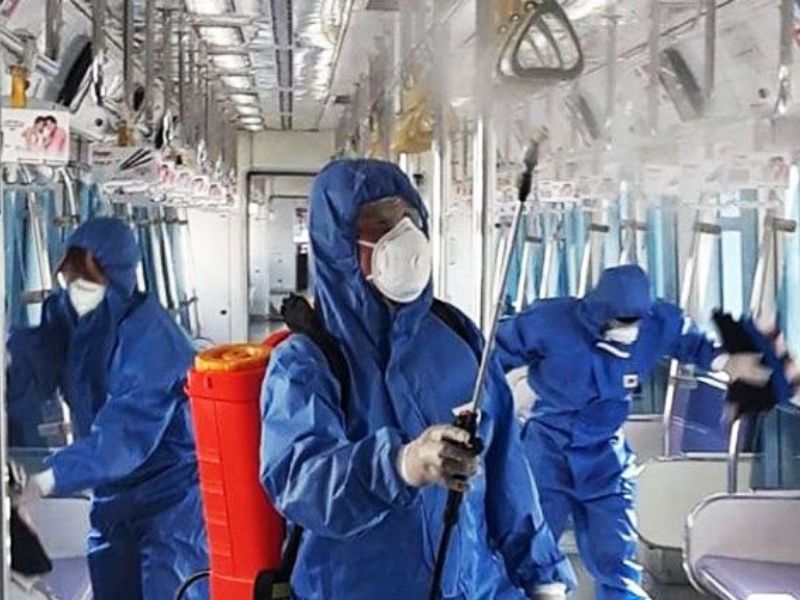The Corovid-19 virus has brought the world to its knees in a matter of months, spreading from one country to another like wildfire and causing havoc to economies worldwide.
As governments brace themselves for a struggle, both on a medical and economic level, some leaders have taken advantage of this time of crisis to put a gag on the free press. This comes at a delicate time when the public demands a flow of information on the state of play while certain governments want to control what information goes out.
The problem seems to be festering across all continents.
The Philippines was one of those that took advantage by limiting access to the quarantined areas to certain media. Bulatlat, a leading alternative online publication, is among the media that has been denied accreditation to cover what’s happening in the quarantine areas. The publication has, on more than one occasion, featured articles about the sorry state of the healthcare system in the country.
INTERNATIONAL SOLIDARITY: Thank you to the Brussels-based International Federation of Journalists (@IFJGlobal) for this statement denouncing government's denial of media accreditation of Bulatlat which amounts to discrimination and repression. pic.twitter.com/5DwPCUfawU
— Danilo Arao (@dannyarao) March 25, 2020
This discrimination has been condemned by the International Federation of Journalists and its affiliate in the Philippines, which is represented by the National Union of Journalists of the Philippines. They are arguing that the Filipino government is giving priority to mainstream media and have called on the relevant authorities to respect press freedom.
Balutlat has described this measure as outright censorship.
The Philippines is not an isolated case. The International Federation of Journalists is at the moment following multiple cases from various countries where freedom of the press is threatened during this time of crisis.
In Venezuela, two journalists were arrested after publishing stories on cases of coronavirus in the country and were taken away from their homes. They were accused of “instigating hate” through their online articles. One of the journalists, Beatriz Rodriguez, who runs La Verdad de Vargas, was detained and interrogated by the authorities. The Venezuelan Syndicate for Journalists said she was asked to reveal her sources.
In the case of Darvinson Rojas, family members are saying that the journalist was still detained 36 hours after his arrest and communication with family was denied.
Like many countries across the globe, the virus in Venezuela is causing a national crisis. But the crisis – this time a political one – in Venezuela has been going on for many years and escalated with Nicolas Maduro’s government.
La Federacion Internacional de Pariodistas (IFJ) said journalists were facing danger amid a world already in a crisis caused by the virus. It called on the Venezuelan authorities to reflect over the lack of information provided to the people in times of crisis.
Brazil is another case in point. President Jair Bolsanaro has accused his political rivals and the press of exaggerating the dangers of the coronavirus. The 65-year-old far-right leader said the media was tricking citizens into believing in the dangers of the virus, which has claimed the lives of more than 20,000 people across the globe.
Turning to India, despite clear instructions by the Ministry of Information to allow journalists to work freely, the police in India have attacked and harassed journalists who allegedly breached lockdown orders. The IFJ said the instructions by the ministry have to be observed as journalists play an essential role in disseminating information in times of crisis.
News reports say a journalist from a Hindi news channel was taken into a police car and beaten after being snatched off his phone. There are other incidents being reported were journalists from various news agencies in India, particularly Delhi and Hyderabad, were physically or verbally abused by the police officers.
Meanwhile, the International Federation of Journalists has urged European leaders to protect the free flow of information in delicate times. In an open letter to the bodies of the European Union, the IFJ called on leaders to express concerns about the dangers of governments taking advantage of the Covid-19 pandemic to punish independent and critical media and to introduce restrictions on the access of media to government decision making and action. In a separate statement, the President of the IMF, Younes Mjahed also warned that this health crisis will also have an effect on the media.
The letter in question made particular reference to the measures taken by the government of Hungary which deals with journalists who publish ‘fake news’.













